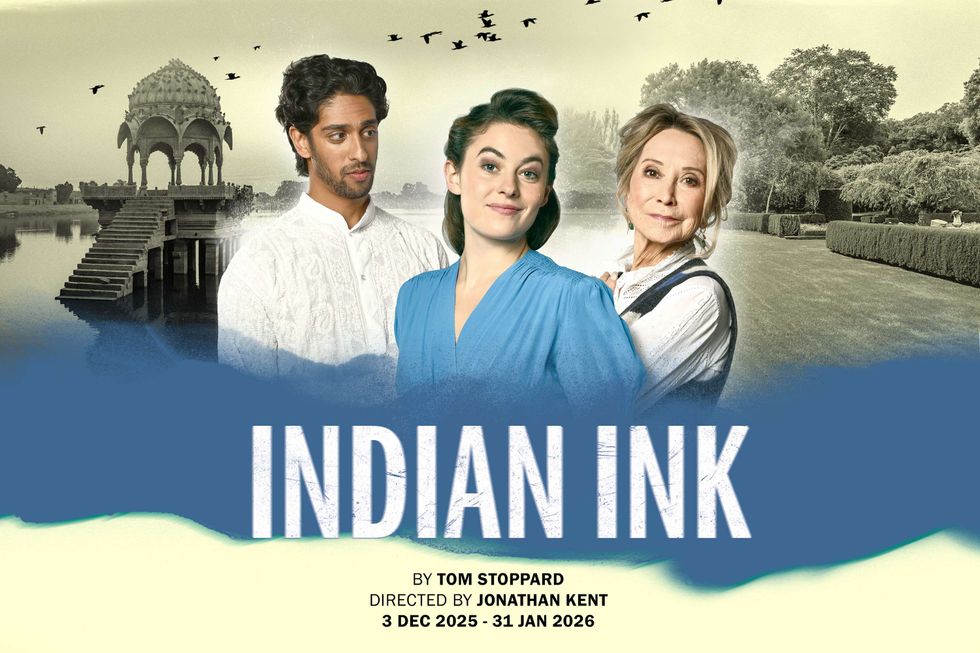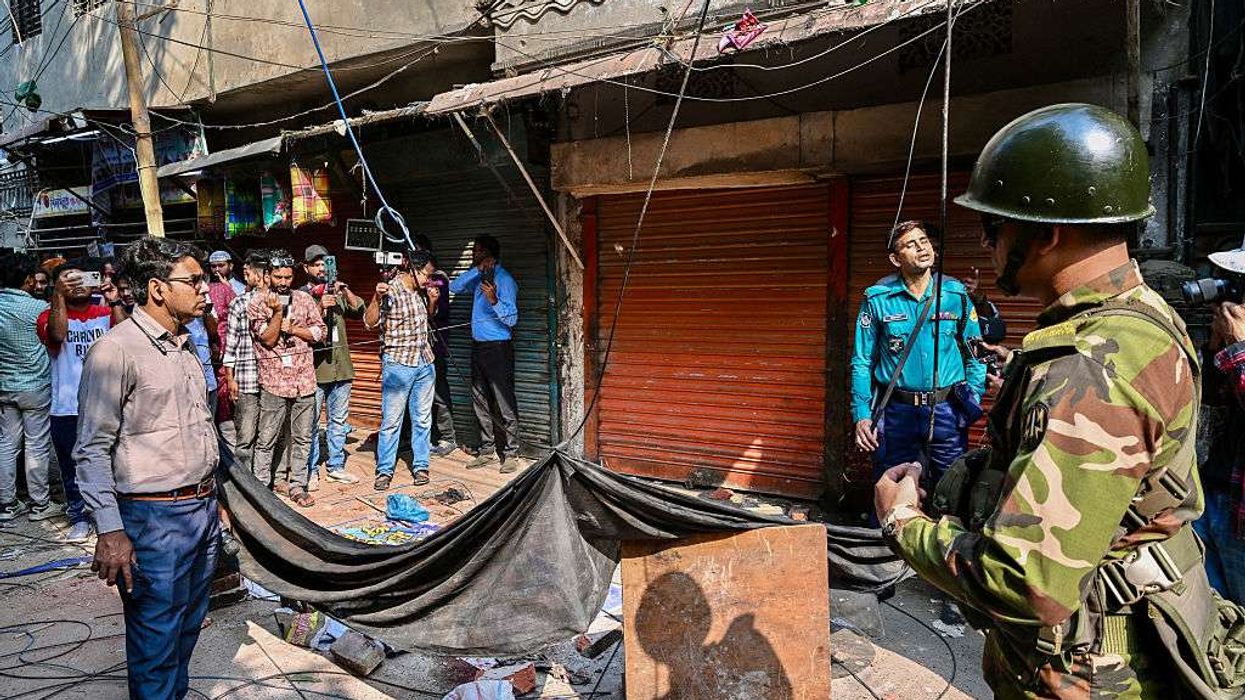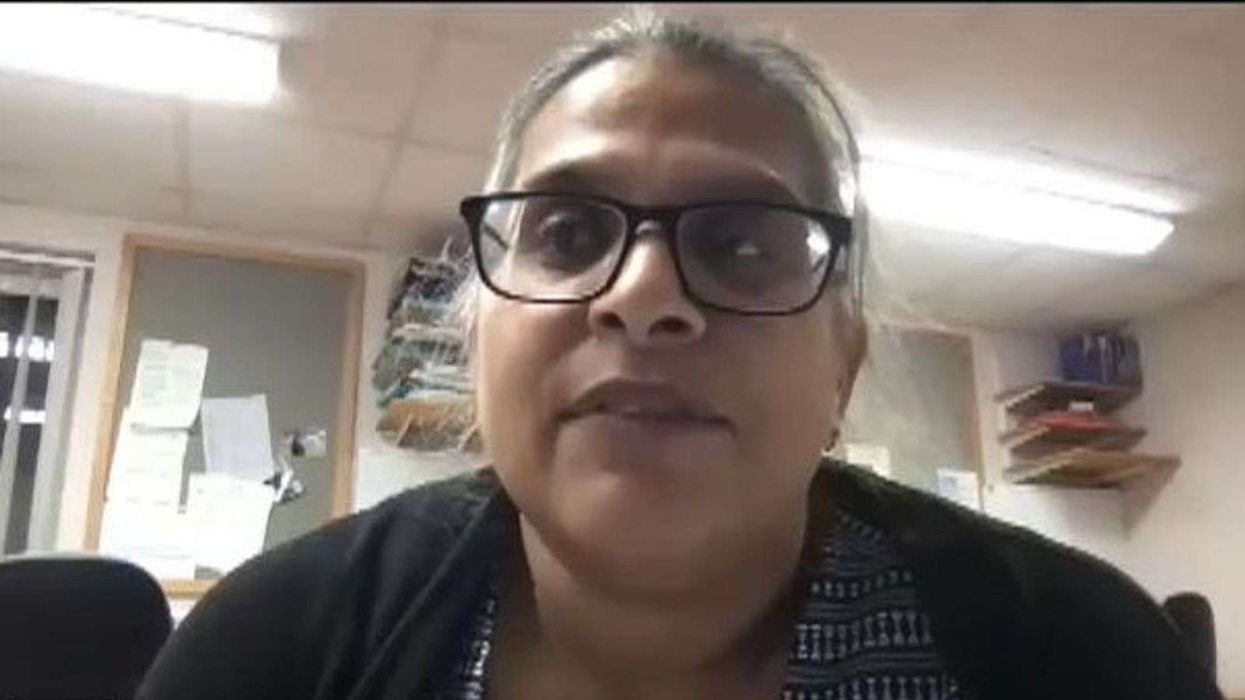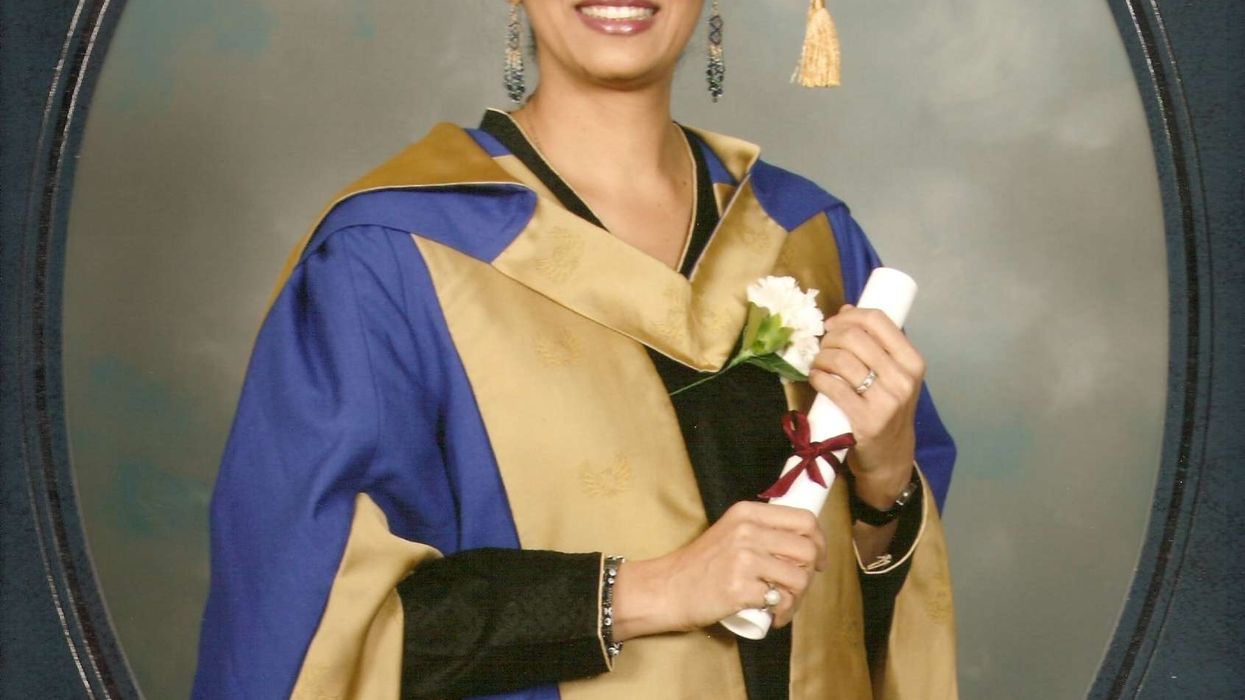AN ASIAN actor who plays the lead in Tom Stoppard’s Indian Ink has called for colonial history to be taught in British schools.
Gavi Singh Chera plays Nirad Das in the play – set in 1930s India – tells the story of Nirad Das, a widower and painter who meets Flora Crewe (Ruby Ashbourne Serkis), a noted Bloomsbury Group poet who has travelled to the subcontinent for her health.
In an interview with Eastern Eye, Singh Chera said despite recent progress, there is “so much work still to do” in creating opportunities for south Asian talent both on stage and behind the scenes.
The actor said, “I’m always struck by how British colonial rule in India is not taught in the UK. It’s not part of the curriculum. In a broader sense for me, colonial history should be taught in British schools.”
He pointed to the contrast between Britain’s colonial past and its present reality.
“The play is set in the 1930s, which is obviously India under British rule for 200 years. Think about how many south Asian people live in Britain (now),” he said, highlighting recent milestones: “We’ve just recently had a south Asian prime minister. We now have a south Asian lady running the National Theatre. We have a south Asian mayor of London.”
However, when it comes to theatre, Singh Chera asked, “Why are there not more south Asians, not just on our stages, our screens, in front of the camera, audiences, but also behind the camera and making executive decisions at high level?” He added, “There’s not many British plays written specifically for south Asian men.”
Directed by Jonathan Kent, Indian Ink features a predominantly south Asian cast, including Sagar Arya, Neil D’Souza, Aaron Gill, Irvine Iqbal and Sushant Shekhar.

Taking on the character of a painter presented a challenge for the actor, who confessed to not having painted since his teenage years.
“I met one of the artists who’s been commissioned to paint our portraits,” he said.
And performing while painting on stage required careful preparation. “I might be painting on stage with an easel, with a bag, so we’ll find out if that works out. Hopefully, I won’t fall into the audience,” he joked.
Language has been another area of focus. Singh Chera’s character speaks in Hindi during the show and with some Sanskrit, too, so the actor worked closely with fellow cast members from India to ensure accuracy.
The role also drew the 30-year-old to India for research, fulfilling a long-held ambition. “I’ve always wanted to go,” he said (his father is from Punjab).
Singh Chera’s journey into acting began at 15 when he joined the National Youth Theatre. He secured a place on the NYT Playing Up course two years later, which he said changed his life. His professional debut came at 19 at the National Theatre in David Hare’s Behind the Beautiful Forevers, where he was noticed by a casting director and secured his first agent.
He trained at RADA, gaining a BA in acting in 2020.
Singh Chera reflected on collaborating with fellow south Asian actors. “I’ve worked with some of them, previously. It’s great just as a younger actor to work with older actors who are both south Asian and have been doing it for a while, and they give you advice.”
The play explores themes Singh Chera believes will resonate with contemporary audiences. “Love, nostalgia,” he said. “I think also just wanting to be valid, wanting your work or your art to be valued, or at least found by the right people who appreciate it.”
The narrative in the play jumps between 1930s India and 1980s England, where Flora’s sister, Mrs Swan, is visited by an American biographer attempting to uncover what happened during the trip. Singh Chera said the pursuit of authenticity was central to understanding the lead characters.
“Flora is a poet whose work deals with what it is to be a woman, feminism within the 1930s. My character is a painter painting under British colonial rule in India. I think oftentimes people go to poetry or go to art to express a thing they can’t say. If they did say it, they’d probably get arrested or imprisoned or ostracised or banished from their communities. So they use the art to say the thing they really wish.”
Other themes include sisterhood and the desire to be appreciated, with Stoppard’s script satirising the self-importance of both academia and the ruling class, while offering what Singh Chera describes as “an evocative meditation on art and love”.
In an era dominated by social media and streaming, the young actor believes theatre offers something essential.
“People who are glued to social media, especially where the content is just a couple of seconds long – I think it’s good to go and see a play where you’re asked to put your phone down and sit with a story and sustain your attention in one sitting.”
He contrasts the theatre experience with modern viewing habits. “With movies now, I’ve been guilty of it – you know, when you start a film, you can now pause it and come back to it. It’s a really good thing just to sit with a story over an evening and see the whole arc of the story and be told the story. That’s an innate thing, something we shouldn’t starve ourselves of.”
For Singh Chera, the play represents more than just another role. It raises questions about representation, education and the power of art to bridge cultural divides – questions that remain as relevant today as they were in the 1930s India where the story unfolds, he added.
Indian Ink will play at Hampstead Theatre from December 3 to January 31, 2026, and at Theatre Royal Bath from February 10 to 14














